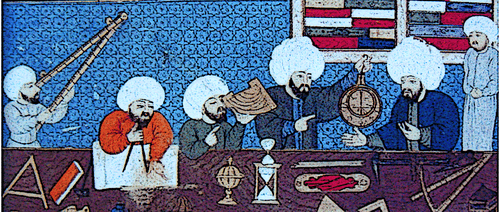
Why Did the Islamic World Fall So Far Behind?
05/28/2018
In the Journal of Economic Literature, Duke U. economist Timur Kuran writes:
Journal of Economic Literature, vol. 56 (2018), in press.
Islam and Economic Performance: Historical and Contemporary Links
Timur Kuran*Abstract. This essay critically evaluates the analytic literature concerned with causal connections between Islam and economic performance. It focuses on works since 1997, when this literature was last surveyed. Among the findings are the following:
Ramadan fasting by pregnant women harms prenatal development;
Islamic charities mainly benefit the middle class;
Islam affects educational outcomes less through Islamic schooling than through structural factors that handicap learning as a whole;
Islamic finance hardly affects Muslim financial behavior;
and low generalized trust depresses Muslim trade.
The last feature reflects the Muslim world’s delay in transitioning from personal to impersonal exchange. The delay resulted from the persistent simplicity of the private enterprises formed under Islamic law.
Weak property rights reinforced the private sector’s stagnation by driving capital out of commerce and into rigid waqfs. Waqfs limited economic development through their inflexibility and democratization by restraining the development of civil society.
Parts of the Muslim world conquered by Arab armies are especially undemocratic, which suggests that early Islamic institutions, including slave-based armies, were particularly critical to the persistence of authoritarian patterns of governance.
States have contributed themselves to the persistence of authoritarianism by treating Islam as an instrument of governance.
As the world started to industrialize, non-Muslim subjects of Muslim-governed states pulled ahead of their Muslim neighbors by exercising the choice of law they enjoyed under Islamic law in favor of a Western legal system.
I have a vague hunch that Islam and the printing press were a bad mix. From Wikipedia:
Due to religious qualms, Sultan Bayezid II and successors prohibited printing in Arabic script in the Ottoman empire from 1483 on penalty of death, but printing in other scripts was done by Jews as well as the Greek and Armenian communities (1515 Saloniki, 1554 Bursa (Adrianople), 1552 Belgrade, 1658 Smyrna). In 1727, Sultan Achmed III gave his permission for the establishment of the first legal print house for printing secular works in Arabic script (religious publications still remained forbidden),[85] but printing activities did not really take off until the 19th century.
The printing press is arguably the biggest invention of all time, but Muslims wouldn’t have much to do with it for several centuries.
